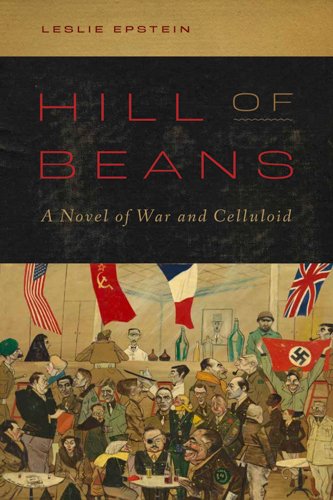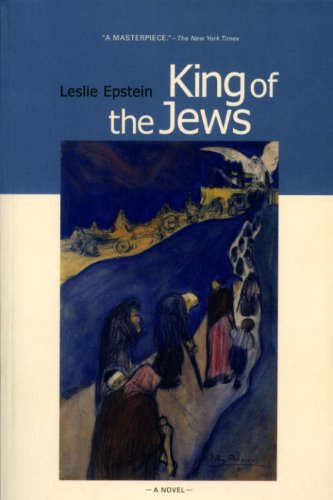Leslie Epstein
Leslie Epstein has published twelve works of fiction. His articles and stories have appeared in Esquire, Harper’s, The Atlantic Monthly, Playboy, the Yale Review, The Nation, The New York Times Book Review, The Washington Post, and The Boston Globe. He was the director of the Creative Writing Program at Boston University for over thirty years where he currently teaches fiction.
News
A theatrical adaptation of THE KING OF THE JEWS opens at Here Theater Organization in NYC and is running October-November 2023
Leslie Epstein for The Tablet: Arts & Letters: “Leib in Love”
Books
Hill of Beans: A Novel of War and Celluloid
Leslie Epstein's new novel Hill of Beans: A Novel of War and Celluloid, just published by High Road Books, an imprint of University of New Mexico Press.
The film Casablanca opens with the words, "With the coming of the Second World War, many eyes in imprisoned Europe turned hopefully, or desperately, toward the freedom of the Americas." Leslie Epstein's Hill of Beans is the story of how one nation, one industry, and in particular one man responded to that desperate hope. That man is Jack Warner, head of Warner Bros. Studio. His impossible goal is to make world events--most importantly, the invasion of North Africa by British and American forces in 1942--coincide with the release of his new film about a group of refugees marooned in Morocco. Arrayed against him are Stalin and Hitler, as well as Josef Goebbels, Franklin Roosevelt, a powerful gossip columnist, and above all a beautiful young woman with a terrible secret. His only weapons are his hutzpah and his heroism as he struggles to bring cinema and city, conflict and conference together in an epic command performance.
Hill of Beans is the novel that Leslie Epstein--the son and nephew of Philip and Julius Epstein, the screenwriters of Casablanca--was born to write.
(University of New Mexico , March 2021)
The Goldkorn Variations: A Trilorgy
The Goldkorn Variations collects in one definitive volume, with a new afterword by the author, three previously published novels (originally from E.P. Dutton and Norton presses) about an aged European flautist, his music and his loves, from childhood to age one hundred and four. The author introduced Leib Goldkorn in his novella The Steinway Quintet which received the American Academy of Arts and Letters’ award for Distinguished Achievement in Literature, later expanded as one of three tales collected in the first of these volumes, and which spawned what came to be known as Goldkorniana.
(Un-Gyve Press, November 2022)
King of the Jews
This 1979 classic tells the darkly humorous story of I.C. Trumpelman, a man whose fancy determines the fate of others. Chosen as the head of a Judenrat, Trumpelman thrives on the power granted him and creates an authoritarian regime of his own within the ghetto. By turns a con man, charismatic leader and merciless dictator, Trumpelman reveals himself as an extraordinarily complex protagonist.
Now available in a new paperback edition from Handsel Books, King of the Jews will continue to be an extraordinary vision of occupied Poland, and offer stunning insight through the trappings of history to questions of equal moral complexity today.
(Other Press, June 2010)
San Remo Drive
Leslie Epstein's bestselling new novel is composed of five interrelated episodes, in each of which a germ of childhood experience is elaborated by the mature imagination of one of this country's most distinguished writers of fiction.
Richard Jacobi, the narrator of these reflections, invites us to revisit the crucial experiences of his youth: driving to Malibu to meet the man determined to marry his mother; on vacation in the Mohave, while his father, the famed Hollywood figure Norman Jacobi and Lotte, his mother, must deal with the terrible consequences of Norman's testimony before the House Committee on Un-American Activities; exploring how a night in a bar and brothel in Tijuana becomes linked to the spiritual growth of his brother, Bartie, who is surely destined to be one of the most memorable and endearing characters in modern literature; viewing a precarious initiation into sexuality that will mark forever the way an artist sees the world and does his work.
This is, then, a novel written from memory, in the same sense that the Schubert sonatas that attract Lotte to her baby grand are played from memory - that is, by heart.
(Other Press, June 2010)




